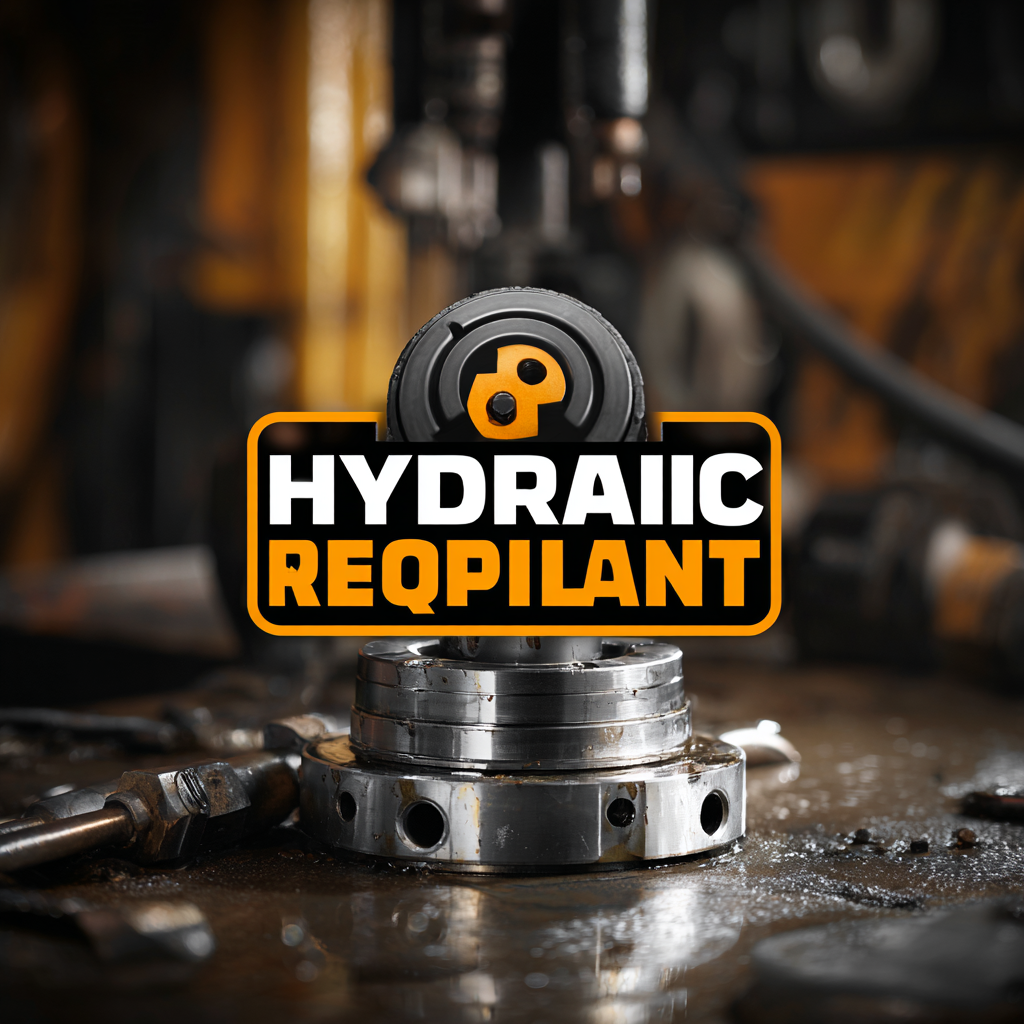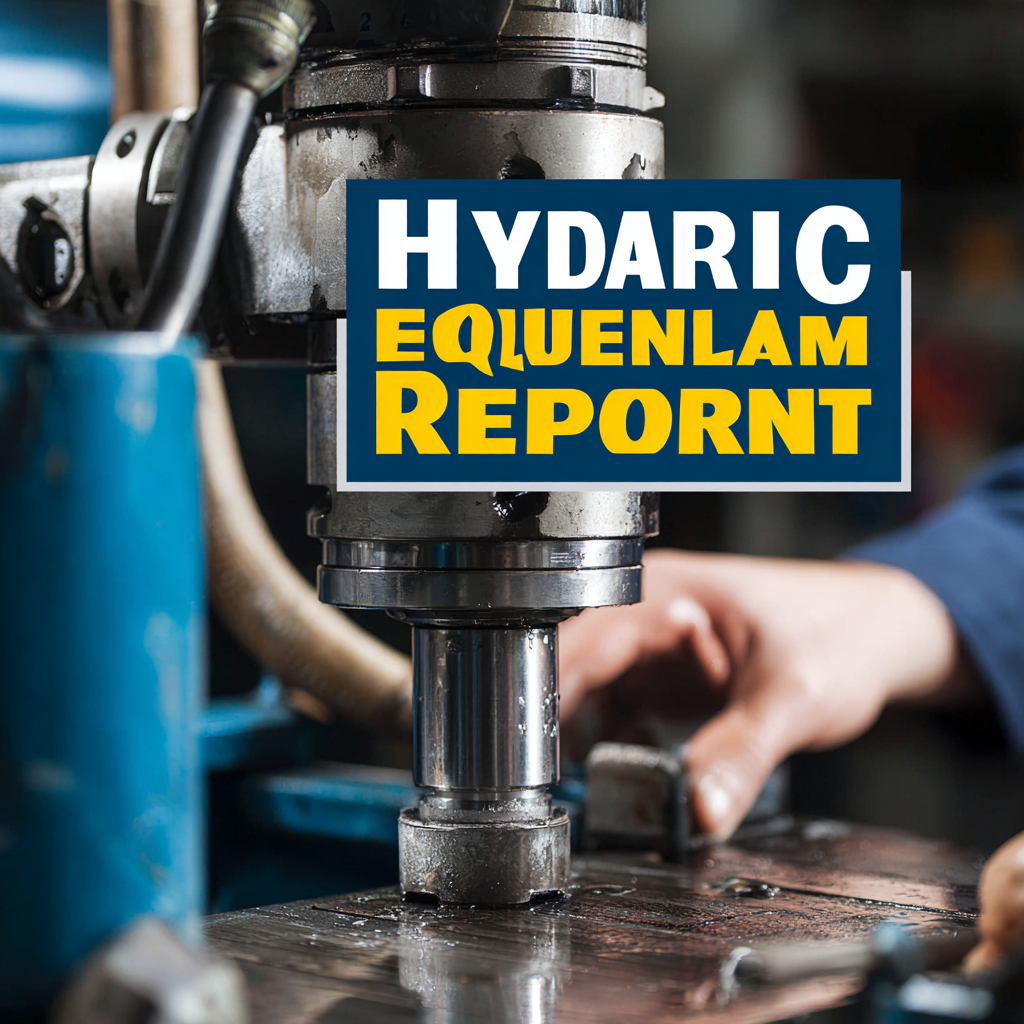Top Strategies for Selecting the Best Hydraulic Equipment Repair Services Worldwide
In the ever-evolving landscape of industrial operations, the efficiency and reliability of machinery are paramount, particularly when it comes to hydraulic systems. According to a recent industry report by MarketsandMarkets, the global hydraulic equipment repair market is projected to reach $3 billion by 2025, driven by the increasing demand for maintenance and repair services in various sectors such as construction, manufacturing, and automotive. With hydraulic equipment being vital for heavy-duty applications, selecting the best hydraulic equipment repair services becomes crucial to minimize downtime and optimize performance. This blog will explore the top strategies for choosing the most effective repair services worldwide, ensuring that your operations run smoothly and efficiently in this competitive market.

Top Factors to Consider When Evaluating Hydraulic Equipment Repair Services Globally
When it comes to selecting hydraulic equipment repair services globally, several critical factors should be considered to ensure you receive top-quality service. First and foremost, evaluate the service provider's experience and expertise in dealing with specific hydraulic systems. An established company with a proven track record in your industry is likely to offer better insights and solutions. Additionally, assess their certifications and training, which indicate their commitment to maintaining industry standards and safety protocols.
Another essential factor is the availability of parts and materials for repairs. A reliable service provider should have access to high-quality components that meet or exceed OEM specifications. This not only guarantees the longevity of repairs but also enhances the overall performance of your hydraulic equipment.
Lastly, consider the level of customer service and support offered. Prompt communication and a clear understanding of your needs can make a significant difference in your experience. Choose a service provider that demonstrates responsiveness and a willingness to collaborate, ensuring that any issues are promptly and effectively addressed. By carefully weighing these factors, you can secure the best hydraulic equipment repair services for your operations.
Cost-Benefit Analysis: Comparing Repair Costs to New Equipment Investment
When considering the cost-benefit analysis of hydraulic equipment repair versus purchasing new equipment, it's essential to assess both immediate costs and long-term value. A recent study on maintenance versus replacement of medical equipment highlights how contracted maintenance can provide cost-efficient solutions, particularly in lower-middle-income contexts. This principle can be similarly applied to hydraulic equipment, where repair services can extend the lifespan of equipment and ultimately reduce the total cost of ownership.
**Tips:** Always gather multiple quotes from reputable repair services to compare repair costs effectively. It's also crucial to analyze the historical performance and maintenance records of your equipment to forecast potential repair needs accurately.
Investing in repair services may seem economically favorable initially, but a comprehensive life cycle cost analysis is necessary to evaluate the impact of these decisions. For instance, reviewing the data from the modelling of life cycle costs of conventional versus alternative vehicles emphasizes the importance of considering long-term operational expenses. Hydraulic systems, especially in high-demand logistics automation environments, can benefit significantly from regular maintenance without the immediate capital outlay of new equipment.
**Tips:** Factor in the downtime associated with repairs versus the time required for purchasing and implementing new equipment when making your decision. Always consider the broader implications for workflow and efficiency in your operational context.
Top Strategies for Selecting the Best Hydraulic Equipment Repair Services Worldwide - Cost-Benefit Analysis: Comparing Repair Costs to New Equipment Investment
| Service Provider Location | Average Repair Cost (USD) | Average New Equipment Cost (USD) | Repair Time (Days) | Warranty Offered (Months) |
|---|---|---|---|---|
| North America | 1,500 | 25,000 | 5 | 12 |
| Europe | 1,800 | 30,000 | 7 | 18 |
| Asia | 1,200 | 20,000 | 4 | 12 |
| Australia | 1,600 | 28,000 | 6 | 15 |
| South America | 1,300 | 22,000 | 3 | 10 |
The Importance of Certifications and Industry Standards in Repair Services
When selecting hydraulic equipment repair services, the significance of certifications and industry standards cannot be overstated. Certifications serve as a testament to the competence and credibility of the repair service provider. They often indicate that the technicians have undergone rigorous training and possess the necessary skills to perform quality repairs. Organizations such as the American National Standards Institute (ANSI) and the International Organization for Standardization (ISO) have established guidelines that repair services must follow, ensuring they meet specific quality benchmarks.
Furthermore, adhering to industry standards is crucial for operational safety and reliability. Hydraulic systems are intricate, and even minor repairs can have significant implications for performance and safety. By choosing certified services, clients can minimize risks associated with improper repairs. These standards not only facilitate the longevity of the equipment but also enhance its efficiency. Thus, when searching for hydraulic equipment repair services, prioritizing providers with reputable certifications and adherence to industry standards is essential for ensuring the best outcomes.
Top Strategies for Selecting the Best Hydraulic Equipment Repair Services Worldwide
This chart displays the top strategies considered essential when selecting hydraulic equipment repair services worldwide, highlighting the importance of service quality, certifications, industry standards, customer reviews, and turnaround time.
Assessing Turnaround Time and Efficiency in Hydraulic Equipment Repairs
When selecting hydraulic equipment repair services, assessing turnaround time and efficiency is crucial. A swift repair process minimizes downtime, allowing you to keep operations running smoothly. In today's fast-paced industrial environment, understanding various monitoring methods can also provide insights into the performance and reliability of repair services. Efficient repair services not only address immediate issues but also contribute to long-term operational excellence.
Tip 1: Always inquire about the average turnaround time for repairs with potential service providers. This will help set clear expectations and ensure that your operational needs are met.
Additionally, the evaluation of performance indicators offers a nuanced understanding of service efficiency. Just as industries refer to performance metrics for water utilities to gauge operational effectiveness, hydraulic repair services should likewise be assessed on similar grounds. This includes evaluating the quality of repairs and the ability to prevent future breakdowns.
Tip 2: Request case studies or references from repair services that highlight their efficiency and turnaround times, ensuring that you choose a provider with proven expertise. By focusing on these metrics, you can enhance the reliability of your hydraulic systems and ultimately support disaster resilience within your operations.

Customer Reviews and Case Studies: Real-Life Insights into Repair Service Quality
When selecting hydraulic equipment repair services, customer reviews and case studies provide invaluable insights into service quality. According to a recent industry report by Grand View Research, the global hydraulic equipment market is projected to reach USD 54.97 billion by 2027, emphasizing the critical role of reliable repair services in sustaining operational efficiency. By analyzing customer feedback across platforms like Trustpilot and Google Reviews, potential clients can gauge the performance and reliability of repair service providers. A survey conducted by BearingPoint found that 73% of customers consider online reviews as a crucial factor in their decision-making process.

Furthermore, case studies showcasing past repair projects can reveal the technical competence and problem-solving capacity of a service provider. For instance, a case study covering a leading hydraulic repair service indicated a 40% reduction in downtime for a major construction company after implementing corrective measures identified during their repair process. This substantial impact underscores the importance of selecting a repair service that not only boasts positive reviews but also demonstrates successful case studies that reflect their ability to manage complex hydraulic systems effectively. Such real-life insights into service performance are essential for ensuring that investments in hydraulic equipment repair services yield the desired outcomes.

We have over 30 years of experience in designing complete hydraulic systems, repairs and distribution of fluid power equipment and parts.
FOLLOW US ON :
Contact Details
Address:
4020 SE 45th CT.
Ocala, FL 34480
Phone No:
Email:
sales@cunninghamfluidpower.com

